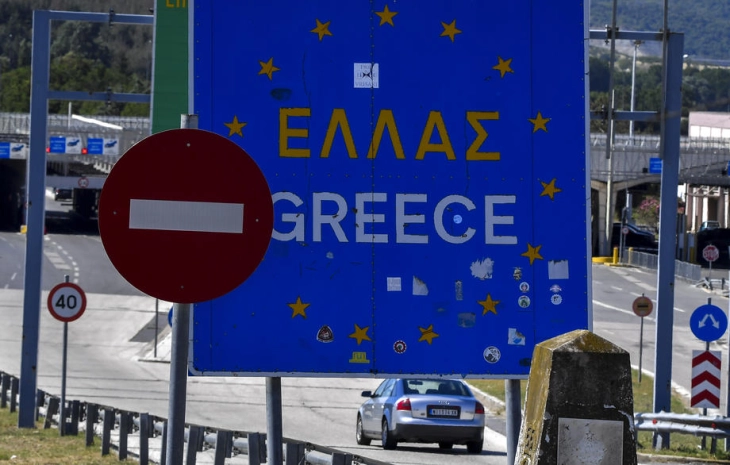Greece changes COVID-19 travel rules

Athens, 10 December 2021 (MIA) – Greece has extended the COVID-19 entry rules for another week, with one significant change – the proof presented by those who have previously had COVID-19 is no longer valid up to 180 days, but up to 90 days, with the document being issued 30 days after the first positive test result, MIA’s Athens correspondent reports on Friday.
Other rules, which include travelers to provide mandatory vaccination certificate and fill out online the PLF (Passenger Locator Form), or if they’re travelling with only negative PCR test results to undergo additional mandatory testing at borders, remain unchanged.
The decision to shorten the validity of documents proving a traveler has previously had COVID-19 from six to three months was announced by government spokesperson Ioannis Ikonomou on Thursday.
In line with the new ministerial decision, which enters into effect as of December 10, the rules will remain in force until December 17.
All border crossings between North Macedonia and Greece are open and travelers “regardless of citizenship and means of entering the country” have four options in regard to the documents they need to provide.
Their first option is to be fully vaccinated. Vaccinated travelers have to wait 14 days after being administered the second vaccine dose in order to enter Greece. The vaccination certificate must be issued either in Greek, English, French, German, Italian, Spanish or Russian by a public institution, and contain information such as: full name (as stated in passport), type of vaccine and number of doses, as well as dates when they were administered.
Alternatively, those presenting negative PCR test results need to have the test done 72 hours prior to entering Greece, whereas those presenting negative rapid test results need to have the test done 48 hours prior to entering Greece. In both cases, tests need to be done at a pre-approved private or national lab. Results must be either in Greek, English, French, German, Italian, Spanish or Russian, and also contain the passenger’s full name as stated in the passport.
Testing at the Greek border is mandatory for nationals who want to enter the country only by presenting negative PCR test results.
Besides Macedonian nationals, those from Egypt, Albania, Argentina, Bulgaria, Brazil, Georgia, Cuba, the United Arab Emirates, India, China, Libya, Morocco, Pakistan, Russia and Turkey will also be tested at borders.
Mandatory testing does not apply to passengers who provide valid vaccination certificates or proof that they had recovered from the virus in the past six months.
In addition, passengers can also enter Greece by presenting proof that they’ve previously had COVID-19, including PCR or antibody test results, with the document issued 30 days after the first positive test results and valid up to 90 days. Tests need to be done at a pre-approved private or national labs and results must also be either in Greek, English, French, German, Italian, Spanish or Russian.
The European digital COVID-19 certificate is yet another alternative option to enter Greece.
The travel rules apply to persons over 12 years of age.
Moreover, prior to the visit, travelers must fill out online the PLF (Passenger Locator Form), available at www.travel.gov.gr. They will receive confirmation containing a QR code, which is considered a necessary document for entering the country.
All arrivals can be subject to random rapid testing when entering Greece. If they test positive, they must remain in mandatory quarantine for 10 days, unless they have been fully vaccinated at least 14 days prior to arrival, in which case they will be put in isolation for 7 days.
On the last day of the isolation period, passengers must undergo another PCR test.
Travelers who have had close contact with a person infected with COVID-19 can return to their country the same or following day, if they test negative twice in 24 hours and wear N95 face masks while travelling.
In case they stay in Greece, but are not vaccinated, nor have had COVID-19 in the past six months, they must stay isolated for 14 days, counting from the last time they were in contact with the infected person, or for 7 days and undergo another PCR test on the last day.
If they are vaccinated or have had COVID-19 recently, they won’t be put in isolation, but must undergo mandatory PCR test upon entry into Greece.
Fines for breaking the measures included in the ministerial decision stand between EUR 500 and 5,000.
The border crossings Evzoni (Bogorodica), Niki (Medzhitlija) and Dojran, between North Macedonia and Greece are open for passengers 24 hours a day.
According to the decision, tourists are required during their stay to abide by measures and restrictions enforced in Greece.
The same documents, with the exception of the PLF are mandatory in indoor facilities nationwide, except in supermarkets, food stores, gas stations, pharmacies and churches.
Moreover, the unvaccinated are completely banned from entering certain facilities.
New measures enter into force in Greece on Monday referring to those over 60, who received the first two vaccine doses seven months ago, but still haven’t been jabbed with the booster.
Their certificates will no longer be valid, they won’t be able to enter indoor facilities and won’t have the privileges enjoyed by the vaccinated.
This measure, Ikonomou told MIA’s Athens correspondent on Thursday, will also apply to tourists and visitors.







